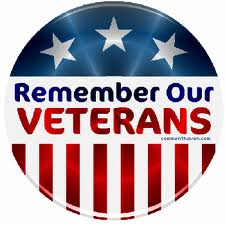
Thousands of service men and women are returning home from Iraq and Afghanistan. These veterans come from the "warrior culture" where they put their needs last, but this often prevents veterans and family members from seeking needed assistance in employment, housing, and care. Federal, state, and local governments are recognizing this challenge.
Check out ICMA’s new webpage on Veterans’ Resources to learn more about veterans’ biggest hurdles and how local government managers are helping their local vets. Here are a few examples:
- Santa Ana, California, has an online Veterans Resource Center. In June, the city will open a Veterans Resource Center in the library as part of the California State Library project, Library Outreach to Veterans Initiative, aimed at providing veterans with a safe and central area where they can get information and have access to computers for filling requisite forms for reintegration. The Santa Ana library regularly hosts veteran's events, including a recent presentation of Lioness, a documentary about the untold story of the first group of women soldiers to be sent into front-line combat; and an upcoming screening of the Tribeca film festival documentary, When I Came Home, addressing veterans’ homeless issues alongside a presentation of local resources for homeless vets.
- Anaheim, California, created a Veterans Working Group with partners from veteran-based nonprofits and community members in 2012. This led to a dedicated City Veterans webpage that serves as an online resource directory connecting veterans to housing and employment resources. A hard copy is also distributed by first responders, which is available at all community centers, libraries, local emergency rooms, and urgent care facilities. Anaheim has also officially established Red Shirt Friday, a small but growing grassroots effort across the country to honor the service members of the Armed Forces who are actively deployed overseas.
- Salt Lake City, Utah, in 2012, public and private organizations met to discuss ways to reduce homelessness. Shelter providers noted that some homeless veterans would always be reluctant to show up at the local VA hospital. In response, VA staff moved their operations to a homeless shelter a few days a week where they stood a better chance of interacting with the people who needed their help. Salt Lake City is participating in the 25 Cities NLC initiative.
- Bernalillo County, New Mexico, opened Henderson House for women veterans and their families, as a supportive transitional living facility. The project is the first of its kind in the nation and has been recognized as a model for the country by First Lady Michelle Obama, the US Senate, and US House of Representatives.
- Eugene, Oregon, organized municipal and community stakeholders to explore ways for the community to address the challenges that veterans face in transitioning to civilian life, which led to the Veterans’ Housing Project (VHP). The VHP provides up to two years of affordable housing to veterans and their families to help them reintegrate into the civilian world. To keep costs down, low-cost and often distressed properties are acquired and rehabilitated. Having veterans live in and care for these homes improves the neighborhood and local economy.
- Colorado Springs, Colorado, and surrounding municipalities developed new models of collaboration and service-providing infrastructure in creating the Pikes Peak Area Council of Governments Network of Care for Service Members, Veterans & Their Families. Veterans and their families can find programs or facilities related to housing, employment, reintegration, education or behavioral health.
- Bexar County, Texas, built on existing programs and created a formal partnership with an existing nonprofit, Veteran Assistance Services. Now Bexar County has a dedicated Veteran Care Specialist providing assistance in accessing, understanding, and filing for VA benefits; and for locating specialized nontraditional resources for veterans and their families, as well as support services for PTSD and traumatic brain injury.
New, Reduced Membership Dues
A new, reduced dues rate is available for CAOs/ACAOs, along with additional discounts for those in smaller communities, has been implemented. Learn more and be sure to join or renew today!
